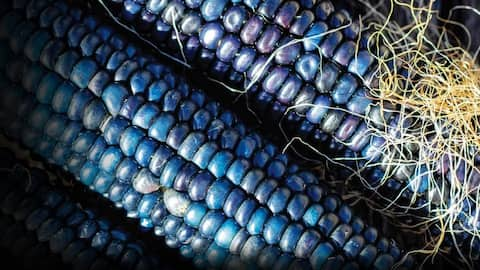Reasons why you should add blue corn to your diet
What's the story
Anthocyanins are a type of plant-based antioxidant that is abundant in blue foods. Consider blue corn as an example. The bluish color is the result of a high concentration of anthocyanins in regular yellow corn. Experts believe that blue corn has more antioxidants than blueberries, which makes them a healthy option to add to one's daily diet. Here are some benefits.
Benefit 1
Good for your heart
By maintaining normal blood pressure and lowering cholesterol, blue corn's high fiber content benefits heart health. Scientists say natural antioxidants present in this food can positively impact overall cardiovascular health, keeping your heart fit as a fiddle. Not only that, antioxidants have been linked to heart health improvements and the prevention of coronary heart disease (CHD), according to research.
Benefit 2
Helpful for diabetics
There is proof that the anthocyanin in blue corn may offer some protection from diabetes. Anthocyanins have been demonstrated in animal experiments to control the release of insulin and the breakdown of carbohydrates, thereby halting the onset of diabetes. Although an ear of corn is an appropriate serving size, check with your nutritionist for the optimum consumption.
Benefit 3
Improves your memory
Blue corn and other foods with a similar hue contain anthocyanin, which has several health advantages, including the potential to enhance memory. This has been backed by various animal studies. Experts reveal that this corn is rich in certain flavonoids that can improve your cognitive abilities, especially giving a boost to your memory and information retention abilities.
Benefit 4
Aids in weight loss
If you are on a weight loss diet, it is safe to include blue corn in moderation in your daily routine. The reason? Well, blue corn and offerings made from it typically contain less starch and have a lower glycemic index, which is advantageous for those who have diabetes or are trying to lose weight. Check with your dietician for the right dosage.
